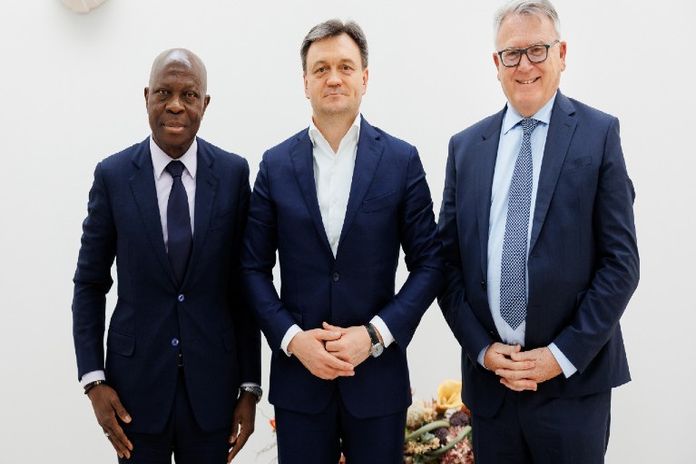CHISINAU, Moldova, (ILO News) – ILO director-general, Gilbert F. Houngbo announced the launch of an ILO project to accompany reforms in key labour market institutions in the Republic of Moldova, all of which will support the process of aligning the country’s labour legislation with international labour standards and related EU acquis at a crucial time when the country is aiming to achieve EU Accession by 2030.
The announcement came as the director-general wrapped up a rare two-day joint visit to the country with EU Commissioner for Jobs and Social Rights, Nicolas Schmit.
“I have come to Moldova for the second time to re-affirm to our tripartite constituents that the ILO is fully committed to work with them in improving access to more and better employment opportunities building an inclusive and fair labour labour market. I would like to thank the European Commission for their support in our common objective to advance decent work in Moldova,” said the ILO director-general.
“As the Republic of Moldova prepares to join the EU, this is a great opportunity to boost its labour market and social protection systems. Ultimately, Moldova’s wealth is its people: by investing in their skills, by creating quality jobs, and by combatting poverty and social exclusion, you get a win-win: for social inclusion and for the economy. I am proud to launch the new EU-ILO project today together with ILO director-general Houngbo, to improve job prospects and make Moldova a more inclusive and prosperous country, ahead of its accession to the EU,” said European Commissioner for Jobs and Social Rights Nicolas Schmit.
Houngbo also held talks with Her Excellency Maia Sandu, the president of the Republic of Moldova, His Excellency Dorin Recean, the prime minister, Mihai Popsoi, deputy prime minister and minister of foreign affairs, and Alexei Buzu, minister of labour and social protection. Discussions focused on the ILO’s continued support in mitigating the impact of the multiple crises on the Moldovan labour market, including the war in neighbouring Ukraine. Moldova currently hosts 115,000 Ukrainian refugees. Discussions also covered the support needed for the EU accession process.
The director-general also met with Igor Zubcu, president of the National Confederation of Trade Unions, and Leonid Cerescu, president of the National Confederation of Employers, during which he reassured the social partners of continued ILO support in fostering social dialogue and institutional capacity-building.
“My message is clear: the path to effective and inclusive policymaking runs through strong social dialogue between the government and employers’ and workers’ organisations. The ILO stands ready to help our constituents in the Republic of Moldova deepen their consultations, cooperation and negotiations. Social dialogue is even more crucial, as Moldova works towards accession to the European Union,” explained DG Houngbo.
Moldova’s many challenges include high levels of migration from Ukraine, demographic transition, high energy prices, lack of quality jobs and persistent informality. Ongoing ILO work in Moldova includes support to employment creation, improving working conditions through formalization of the informal economy, strengthening of social dialogue, enhancing childcare provision, gender equality and non-discrimination, countering violence and harassment in the workplace, and promoting skills development, including green skills. The ILO is also providing technical support to the reform of the National Employment Agency and the State Labour Inspectorate.





